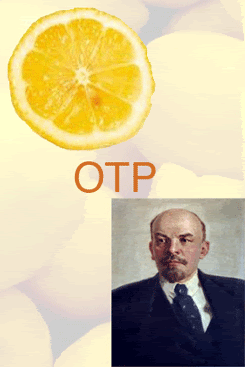Willow and Tara + The Death of Buffy by uh, I forget
See, I wanted to talk about this in order to talk about comic books as a medium. First of all, these were more like comic books than graphic novels, which I have read and in some ways prefer, but I read these because of my Buffy obsession, and being in the woods with no access to a computer. And so you see, this led to Buffy comic books.
So, Willow and Tara was clearly the better of the two - The Death of Buffy was just lame, not because the story was so bad - there was a demon that feeds on grief, so it’s reasonable - but because the dialogue between the characters was so squicky and out of character, and whenever the writer didn’t know what to do, he/she just reused plots from sixth season. Like dude, Willow hasn’t brought back Buffy yet, why draw it or bring too much attention to it? Yeah, bleh. Willow and Tara was a lot better, partially because it was co-written by Amber Benson, who clearly wasn’t doing it for the money, but for love of her character, and also because yay lesbians and cuteness and witches, and oh btw, I’m obsessed with Willow and all that. (And did I mention; harry potter reference! Dawn mentions “expelliarmus.” This make two so far in Buffy that I’ve seen, the first being when Willow likens Giles to Dumbledore, which made me grin.) This comic book was more what I’d expect from a Buffy comic, with a plot clearly and obviously separate from the ones in the actual TV show, yet still interesting, and also, not too out of character. See, something actually happens in this one.
Getting back to the medium topic, I think reading these really indicated to me why I much prefer books than comic books or, graphic novels sometimes. You just can’t get lost in a comic book. Not really. I mean sometimes, and I have, a bit, but it’s just not the same. Add that to my terrible pictoral comprehension of I dunno, anything and I just can’t get terribly into graphic novels/comic books. Though there are a couple notable exceptions, where I really saw the power of graphic novels: this one about spirals that my friend’s girlfriend lent to me awhile ago, read it in one sitting - rather frightening and creepy, I’ll never look at a spiral the same way again, etc., and also this one called “I was a Rat” which I read in one sitting in my highschool library after school one day, about a girl who was sexually abused by her father, and escapes and is taken in by this other farm family. I really liked that one because it absolutely used the visual effectively, something I have a really difficult time with. But that graphic novel really made it effective and necessary, down to the expressions on the characters’ faces.
Ships: Willow/Tara of coure, cute as usual. A bit of possibly intentional Spike/Xander, oh yeah, only the dialogue was so terrible I couldn’t quite squee about it. Also, a couple of the Wicca girls were ambiguously non-straight, so that was kind of cool.
The last section’s not here, cause, well, it’s not a kids’ book! Even though there is dirty fodder of course, it doesn’t count since it’s not a kids’ book.
This post on a full page. Spoilers if I mention it.

